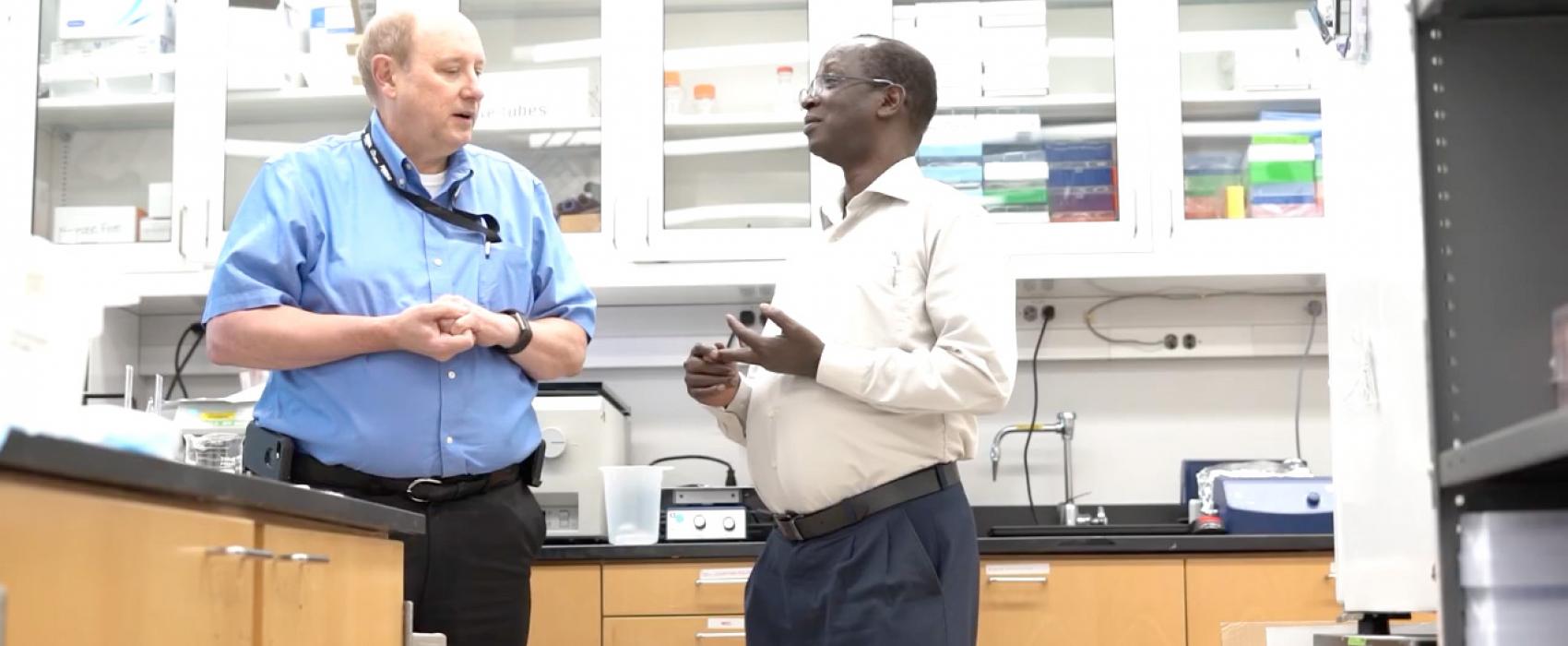A safe, effective HIV vaccine is key to ending an epidemic that continues to kill nearly one million people a year. MHRP is engaged in advancing next-generation vaccine technologies and platforms and optimizing vaccine formulation, dosing and scheduling.
mRNA Vaccine Platform
Messenger RNA, or mRNA, vaccines tell the body how to make certain proteins from a virus to train the immune system to recognize and neutralize it. Given the success of COVID mRNA vaccines, the platform may hold promise for HIV vaccines. MHRP and partners conducted a preclinical trial of an experimental mosaic HIV vaccine study in Thailand in 2022.
In addition, MHRP is collaborating with WRAIR’s Pilot Bioproduction Facility (PBF), a cGMP-compliant pharmaceutical manufacturing facility on WRAIR’s Silver Spring campus, to establish an mRNA manufacturing program leveraging institutional knowledge and partnerships to develop a novel mRNA vaccine for HIV prevention.
Vaccine Optimization
Other MHRP trials seek to develop improved vaccine components and optimize regimens. The Army-developed Army Liposome Formula (ALF) entered its first human trial in 2021, a comparative adjuvant study (RV460) in Kenya that provided insight into the role of adjuvants in priming versus boosting.
In 2022, MHRP and collaborators launched a Phase 1 trial to evaluate safety, tolerability, and immunogenicity of varying doses of the ALFQ adjuvant in a candidate HIV vaccine to optimize adjuvant dosage. The study, RV575, was conducted the Walter Reed Army Institute of Research Clinical Trials Center in Silver Spring, MD.
ALFQ was also evaluated in a study in Thailand (RV546) in collaboration with Duke University as part of a late boost regimen. This study is examined fractional dosing of a candidate HIV vaccine to determine whether smaller doses of valuable antigen induce effective immune response, a variable that will help a potential vaccine reach more people.
MHRP researchers are also working on a dose escalation strategy they call RapidVax. The approach seeks to evaluate whether exposure to HIV antigen in escalating doses administered over several days, a pattern that mimics natural acute HIV infection, increases antibody magnitude and function. This strategy was informed by the insights gained from the RV217 acute HIV infection cohort study into the earliest days of HIV infection.
Boosting Strategies
The Army-led RV144 “Thai Study” was the first clinical trial to show modest efficacy in preventing HIV infection, and the landmark trial continues to provide scientific direction to help guide vaccine development and testing. MHRP scientists conducted RV144 follow-up studies to discover correlates of risk, provide targets for optimizing vaccine boosting and critically compare the regimen against more recent HIV vaccine candidates.
MHRP researchers conceived of RV306 to assess the effect of an additional vaccine boost to the RV144 regimen at varying intervals between the priming vaccine series and the boost. Naïve, healthy volunteers received the RV144 regimen, followed by an additional boost at month 12, 15 or 18. This trial also included extensive assessment of peripheral as well as mucosal responses upon vaccination. Results showed that longer intervals between the primary vaccination series and late boost improved immune responses and might improve the efficacy of preventing HIV acquisition, a strategy now being considered in the design of MHRP’s future vaccine trials. Findings were published in Lancet HIV.
